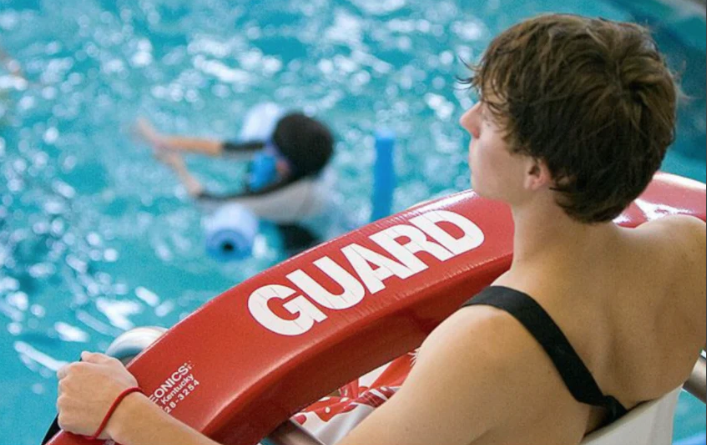Summer is synonymous with fun in the sun, but it’s also a time when water-related accidents spike. This is where lifeguards play a crucial role, ensuring the safety of swimmers and beachgoers. If you’re looking for a rewarding summer job that combines responsibility with excitement, obtaining a lifeguard certificate through the American Lifeguard Association could be your ticket to an unforgettable summer experience.
Why Become a Certified Lifeguard?
Ensuring Safety
As a lifeguard, your primary responsibility is to ensure the safety of everyone in and around the water. With a lifeguard certificate from the American Lifeguard Association, you’ll receive comprehensive training that equips you with the skills needed to respond effectively to emergencies and prevent accidents before they happen.
Summer Employment Opportunities
Summer is peak season for lifeguarding jobs, with beaches, pools, water parks, and resorts all seeking qualified individuals to keep their patrons safe. By obtaining a lifeguard certificate, you open yourself up to a wide range of employment opportunities, allowing you to earn money while enjoying the sunshine and fresh air.
Personal Development
Becoming a certified lifeguard is more than just a job; it’s an opportunity for personal growth and development. You’ll learn valuable skills such as first aid, CPR, water rescue techniques, and effective communication, all of which can benefit you both professionally and personally.
The Process of Obtaining a Lifeguard Certificate
Training Courses
The American Lifeguard Association offers comprehensive training courses that cover everything you need to know to become a certified lifeguard. These courses typically include classroom instruction, hands-on training, and practical assessments to ensure you’re fully prepared for the demands of the job.
Written Exams
In addition to completing the training courses, you’ll need to pass written exams to demonstrate your understanding of lifeguarding principles, protocols, and procedures. These exams test your knowledge of water safety, rescue techniques, first aid, CPR, and more.
Practical Skills Assessment
Once you’ve passed the written exams, you’ll undergo a practical skills assessment to demonstrate your ability to perform essential lifeguarding tasks. This may include simulated rescue scenarios, CPR simulations, and water rescue drills to ensure you can respond effectively in real-life situations.
Certification
Upon successful completion of the training courses, written exams, and practical skills assessment, you’ll receive your lifeguard certificate from the American Lifeguard Association. This certification validates your qualifications as a lifeguard and opens the door to exciting job opportunities.
Benefits of Obtaining a Lifeguard Certificate
Job Security
Certified lifeguards are in high demand during the summer months, giving you a sense of job security knowing that there are plenty of opportunities available. Whether you’re looking for full-time employment or part-time work to supplement your income, a lifeguard certificate ensures you’ll always have options.
Rewarding Experience
Few summer jobs offer the level of satisfaction and fulfillment that lifeguarding near me does. Knowing that you’re making a difference by keeping people safe and preventing accidents is incredibly rewarding. Plus, the camaraderie among lifeguards and the sense of belonging to a community are unmatched.
Transferable Skills
The skills you acquire as a certified lifeguard are highly transferable and can benefit you in various aspects of your life. From problem-solving and decision-making to teamwork and leadership, lifeguarding teaches you valuable skills that can be applied to any job or situation.
Conclusion
Obtaining a lifeguard certificate through the American Lifeguard Association is not only a gateway to a rewarding summer job but also an opportunity for personal and professional growth. With comprehensive training, valuable skills, and exciting employment opportunities, lifeguarding offers an experience like no other. So why wait? Take the plunge and start your journey towards becoming a certified lifeguard today!
FAQs
How long does it take to become a certified lifeguard?
The time it takes to become certified can vary depending on the training program and your availability. However, most courses can be completed in a matter of weeks.
Do I need any prior experience to become a lifeguard?
While prior swimming experience is beneficial, it’s not always required. Lifeguard training courses are designed to teach individuals of all skill levels the necessary skills to become effective lifeguards.
What age do you have to be to become a certified lifeguard?
The minimum age requirement to become a certified lifeguard varies by organization and location. In many cases, you must be at least 15 or 16 years old to enroll in lifeguard training courses.
Do lifeguards need to renew their certification periodically?
Yes, lifeguard certifications typically expire after a certain period (e.g., one to three years), after which lifeguards must undergo recertification to maintain their credentials.
Are there job opportunities for lifeguards outside of the summer season?
While summer is the peak season for lifeguarding jobs, there are opportunities available year-round at indoor pools, fitness centers, and aquatic facilities.

